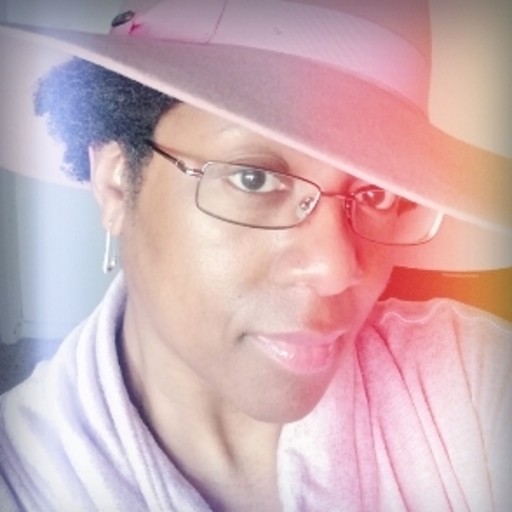Ever Wondered What The Rules Of Filming Sex Scenes In Movies Are Now? Intimacy Coordinators Speak Out: ‘Why Did I Take My Pants Off?’
So many details to work out!

Generally, when we see entirely new careers pop up, it’s because of technological advancement. However, that did not apply to intimacy coordinators, who have now become the norm on movie and TV sets after the dawn of the #MeToo movement revealed just how prevalent sexual misconduct/abuse has been in a number of industries throughout time, including Hollywood productions. We’ve heard before from those who work in the profession about what their jobs can entail (like with Elizabeth Talbot, the intimacy coordinator who helps the cast of Bridgerton), but now we have even more insight into what the current rules of filming sex scenes are.
What Intimacy Coordinators Recently Said About The Rules Of Filming Sex Scenes Now
To put it mildly, there have been a number of unfortunately gross things that have happened when it comes to actors filming sex scenes in movies and TV, even in the very recent past. While the teen dramedy Sex Education (which you can watch with your Netflix subscription) was the first series to hire an intimacy coordinator, most productions now use one to help when it comes to filming any scenes of an intimate nature.
The conversation from actors on whether they are helpful or not is pretty varied, with stars like Sam Heughan actually bringing one in for Season 6 of Outlander and Grey’s Anatomy star Kim Raver talking about why she wanted one for her on-screen hookup with Sophia Bush, while Gwyneth Paltrow and others have gotten negative feedback on their comments.
A recent feature in The New Yorker got an inside look at the profession when it profiled those participating in training for the intimacy coordinator field, which revealed just how intensive both the training and eventual work they do is. Not only do they clarify exactly what it is a director wants from a scene and what actors are comfortable with, but they do it by asking loads of questions with those involved, such as:
‘How do you feel about simulating an orgasm?’ and ‘Do you have any allergies?’
That first query seems pretty intuitive, given what the coordinators do, but the one about allergies stumped me until I saw the reason. If there will be kissing or other physical contact in the scene (which is usually the case when intimacy coordinators are involved) and one participant has a serious allergy, just touching someone who’s eaten say, shellfish or nuts, could set off symptoms and no one wants to make anyone ill. It makes total sense, but without the emergence of this entire career field, who would even consider asking such a question before a sex/kissing scene?
The people who work in this career are also responsible for creating the nudity rider after fielding all those questions and seeing where the actor’s comfort level is (right down to exactly what body parts are shown and how, along with how they’ll be touched or not by their scene partner(s)). That rider isn’t set in stone, however, with the actors being able to change what they’re willing to do whenever they want, with there being a 48 waiting period when those changes are made. As one participant noted when talking over policies:
You can revoke your consent at any time, but then production has the right to use a body double. Though the body double can’t do anything you didn’t agree to do in the original rider.
This means that if the actor originally agreed on complete full-frontal nudity from the neck down, but only with the left half of their body showing from behind a shower door, the body double will then be hired to do exactly that, and no more. You might wonder, then, if directors can change their mind on what they want or are willing to accept. Yehuda Duenyas, who led the workshop through his SAG-AFTRA accredited intimacy coordinator training program answered that question, and said:
Your Daily Blend of Entertainment News
Look, if Werner Herzog were here, he’d be, like, ‘This is fucking ridiculous, film is the art of the moment, storyboards are for the weak.’ There are protocols in place, though.
Said protocols include the creation of a new nudity rider (with that 48 hour waiting period before filming), even if the actor has said they want to do more on camera, as opposed to less. Why, you might ask? Well, as Duenyas added:
Because, when they come down from that high, they might think, ‘Why did I do that? Why did I take my pants off?’
Clearly, this is a tricky situation that demands a lot of thought and preparation. While some, like Shailene Woodley, have said she dislikes coordinators when she’s working because it “feels like another set of eyes that I don’t need,” and Sean Bean went viral for his opinion that they “spoil the spontaneity” of sex scenes, there are still those who like working with them and wish they’d been able to work with them all along. Kate Winslet, for one, has noted that she now wishes she could have had “someone in my corner” for her entire career because “learning to have a voice for oneself in those environments was very, very hard.”
Even if an actor doesn’t like working with intimacy coordinators, it does seem clear that they can help keep everyone’s boundaries at the forefront of the conversation, and hopefully take care of potential issues before anyone has regrets.

Covering The Witcher, Outlander, Virgin River, Sweet Magnolias and a slew of other streaming shows, Adrienne Jones is a Senior Content Producer at CinemaBlend, and started in the fall of 2015. In addition to writing and editing stories on a variety of different topics, she also spends her work days trying to find new ways to write about the many romantic entanglements that fictional characters find themselves in on TV shows. She graduated from Mizzou with a degree in Photojournalism.
You must confirm your public display name before commenting
Please logout and then login again, you will then be prompted to enter your display name.
